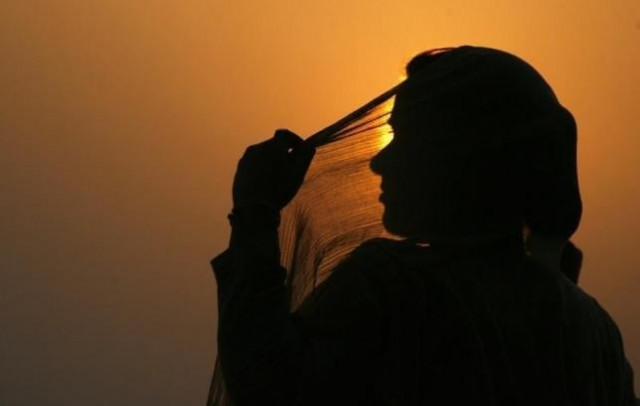Parliamentary panel clears honour killing, rape laws
Joint sitting to vote on anti-honour, anti-rape bills

PHOTO: REUTERS
A committee of joint session of parliament on Thursday approved the Anti-Rape Laws (Criminal Laws Amendment) Bill, 2016, and Anti-Honour Killings Laws (Criminal Laws Amendment) Bill, 2016. Now the bills would be presented for a vote before a joint sitting of parliament.
Rights groups and politicians have for years called for tougher laws to tackle perpetrators of violence against women in the country and the move follows a slew of high-profile killings in the country.
The perpetrators of so-called honour killings — in which the victim, normally a woman, is killed by a relative — often walk free because they can seek forgiveness for the crime from another family member.
Rape conviction rates meanwhile are close to zero percent, largely due to the law’s reliance on circumstantial evidence and a lack of forensic testing.
Under the new law relatives of the victim would only be able to pardon the killer of capital punishment, but they would still face a mandatory life sentence of twelve-and-a-half years.
In the anti-rape bill, a provision to conduct DNA tests on both the alleged victim and perpetrator has been added for the first time. Rape of minors, as well as the mentally and physically ill, would become punishable by death. To make anti-honour killing laws more severe, it has been proposed that the accused will get life imprisonment of 25 years even if he gets a waiver under Qisas or Diyat and it will also be non-commutable.

Minister for Law and Justice Zahid Hamid chaired the meeting of the joint committee. Hamid also announced that the report about both the bills was likely to be presented before the joint session of parliament in the first week of August and then it would become part of the constitution.
Apart from seeking some clarifications from the chairperson, the members of the committee largely agreed to the new provisions being incorporated in the constitution.
The Upper House of parliament passed the bill in 2015 moved by Pakistan Peoples Party (PPP) Senator Syeda Sughra Imam but it lapsed after the government failed to put it up for a vote in the Lower House because it was preoccupied with legislation aimed at tackling security problems and economic reforms.
Hamid said: “We have plugged all loopholes in the anti-honour killing legislation, which will be put up for approval at a joint sitting of parliament soon.”
In the anti-rape bill, DNA tests on both the victim and the alleged perpetrator has been added to the constitution. Besides, as per the proposed bill, now the DNA test of the victim would be conducted after taking her consent while it will be mandatory for the accused.
“Or it can be conducted forcibly,” the law minister said.
Similarly, for the first time, anyone hampering the investigation into a rape case will be sentenced with three years of imprisonment. Besides, rape of minors, as well as mentally and physically challenged, would become punishable by death.
The trial of rape cases would be binding to be completed in three months while the time for appeal in such cases would be four months.
Right after the committee decision, Maryam Nawaz tweeted that “we have achieved consensus on anti-honour killing and anti-rape bills in committee of joint sitting of Parliament. Great news for Pakistan”. In another tweet, she stated: “The bills shall now be submitted to joint sitting to be held in (two) weeks. Was an uphill task as countless days and nights have gone into it.”
Published in The Express Tribune, July 22nd, 2016.



















COMMENTS
Comments are moderated and generally will be posted if they are on-topic and not abusive.
For more information, please see our Comments FAQ